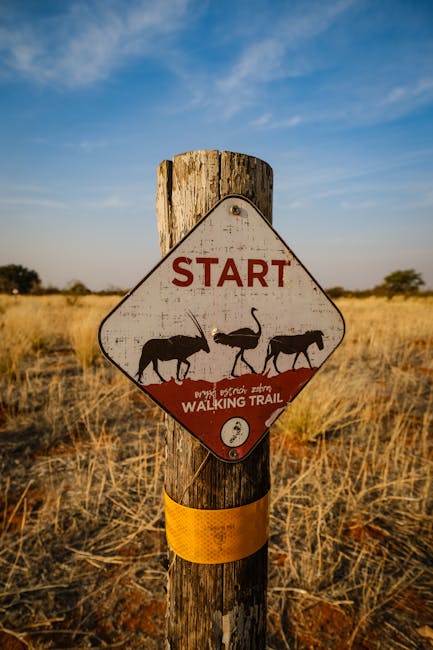Discover the latest insights on how to start trading in 2025’s dynamic financial environment. This comprehensive guide covers actionable steps for new investors amidst recent market shifts, including the rising influence of AI-driven trading, regulatory updates, and global economic changes. Learn strategic tips, risk management techniques, and the best platforms like Fortrade to confidently engage in today’s trading landscape.
The financial markets in 2025 are characterized by unprecedented volatility and rapid change, driven by geopolitical tensions, sweeping regulatory reforms, and innovations such as AI-enhanced trading tools. As global economies recalibrate post-pandemic and tech sectors reshape market behavior, aspiring traders face both opportunities and challenges. Understanding how to start trading now requires not only grasping fundamental concepts but also adapting to the latest market-driven developments and technologies. This article presents an authoritative roadmap for new traders, blending current market insights with practical strategies to thrive in today’s evolving financial ecosystem.
Understanding the 2025 Trading Landscape

Recent Market Volatility and Its Causes
In 2025, markets have experienced heightened fluctuations due to a confluence of factors. Primarily, geopolitical conflicts in Eastern Europe and the Asia-Pacific region have unsettled commodity prices, while central banks globally have shifted towards tighter monetary policies to combat persistent inflationary pressures.
- Rising interest rates by the Federal Reserve and ECB increasing borrowing costs.
- Supply chain disruptions affecting energy and semiconductor sectors.
- Accelerated adoption of AI technologies creating new trading dynamics and volatility spikes.
Consequently, these influences pose unique risks and opportunities, making it imperative for new traders to understand the macroeconomic backdrop before entering the markets.
Key Regulatory Changes Impacting New Traders
Regulators across major markets have introduced enhanced compliance requirements and investor protections in 2025, focusing on digital assets and AI-based trading platforms. Notable changes include:
- Stricter KYC (Know Your Customer) and AML (Anti-Money Laundering) protocols.
- New guidelines on algorithmic and high-frequency trading to reduce systemic risks.
- Expanded oversight on crypto asset trading, requiring licensed intermediaries.
Understanding these regulatory frameworks is essential for traders to ensure lawful participation and avoid penalties.
How to Start Trading: Step-by-Step Guide for 2025

Step 1: Educate Yourself on Market Fundamentals and Current Trends
Starting with a robust education is vital. Beyond basics like reading stock charts and learning order types, new traders must grasp how AI tools and macroeconomic data impact prices. Recommended resources include:
- Comprehensive courses on platforms such as Digital Courses specializing in modern trading methods.
- Regularly updated financial news from Bloomberg and analysis from Investopedia.
- Understanding AI-driven market signals and sentiment analysis tools.
Moreover, keeping abreast of daily market conditions aids in developing context-sensitive trading decisions.
Step 2: Choose the Right Trading Platform
Platform selection can significantly affect your trading experience. For 2025, platforms that integrate intelligent features and regulatory compliance stand out. Consider these criteria:
- Regulated by major authorities such as FCA, CySEC, or ASIC.
- User-friendly interfaces with advanced analytics capabilities.
- Access to diverse markets including equities, commodities, forex, and cryptocurrencies.
- Competitive spreads, swift execution, and reliable support.
Fortrade is an exemplary option fitting these requirements. Fortrade is a regulated, user-friendly platform suitable for both beginners and experienced traders. Sign up directly here: www.fortrader.com/minilps/en/pro-dark-dlp/.
Step 3: Create a Trading Plan and Define Your Risk Management Framework
Establishing a well-defined trading plan aligned with your financial goals and risk tolerance is critical. Key components include:
- Setting realistic profit targets and maximum acceptable losses per trade.
- Deciding on trading instruments and timeframes (day trading, swing trading, long-term investing).
- Implementing stop-loss and take-profit orders to automate risk management.
- Allocating capital across different asset classes to diversify exposure.
Discipline in adhering to the plan helps mitigate emotional decisions during volatile market phases.
Step 4: Begin with Demo Trading to Build Confidence
Using virtual trading accounts provided by many brokers allows new traders to practice strategies without risking real capital. Benefits include:
- Familiarizing with order placement and platform navigation.
- Testing how algorithm-based signals and market data translate into actionable trades.
- Building psychological resilience to price swings.
This preparatory phase is invaluable for refining trading techniques before committing actual funds.
Step 5: Transition to Live Trading with Initial Small Positions
After gaining experience, start live trading with modest capital, progressively scaling as confidence and skills mature. Always adhere to your risk limits to safeguard capital.
Emerging Trends Affecting How to Start Trading in 2025

AI-Powered Trading Tools and Their Advantages
The integration of artificial intelligence into trading platforms has revolutionized market access, analysis, and execution speed. New traders benefit from:
- AI-generated trading signals that analyze vast datasets for pattern recognition.
- Automated risk management tools that adjust exposure dynamically.
- Chatbot advisors offering personalized guidance and market insights.
These technologies democratize advanced trading capabilities previously available only to institutional investors.
The Role of Sustainable and ESG Investing
Environmental, Social, and Governance (ESG) criteria increasingly influence capital flows. New traders can harness this trend by:
- Targeting companies with strong ESG ratings to align values and potentially reduce risk.
- Using ESG-themed ETFs as diversified introductions into global equity markets.
- Monitoring regulatory incentives promoting green investments.
Focusing on sustainability can complement financial returns with social impact considerations.
Frequently Asked Questions (FAQ)
What are the initial capital requirements to start trading in 2025?
There is no fixed minimum capital to start trading, but many brokers recommend beginning with at least $500 to $1,000 to enable effective risk management and diversify trades. Some platforms allow micro-lot trading, which lowers barriers for smaller investors. Always ensure your capital matches your risk appetite.
How do recent geopolitical events impact which assets I should trade?
Geopolitical tensions can cause commodity prices (oil, gold) and currency pairs to experience higher volatility. Traders often look for safe-haven assets during such periods, like gold and government bonds. Diversifying across sectors reduces exposure to region-specific risks. Staying informed through trusted financial news outlets is crucial for timely reactions.
Is algorithmic trading suitable for beginners, and how can I start using it?
While algorithmic trading can enhance efficiency, beginners should first understand market fundamentals. Many brokers offer simplified AI-based signal services and auto-trading options designed for novices. Starting with demo accounts to test algorithms’ performance without financial risk is advisable. Gradually increasing familiarity reduces potential pitfalls.
Conclusion and Call to Action
Starting your trading journey in 2025 demands a nuanced understanding of modern market volatility, regulatory landscapes, and technological innovations. By following a structured approach—educating yourself, selecting a reliable platform like Fortrade, developing a comprehensive plan, and leveraging AI-driven tools—you can navigate complexities confidently and strategically. To explore personalized guidance or deepen your knowledge, visit Digital Courses or connect with our experts via WhatsApp at +447537187280. Empower your financial future with informed decision-making and the right support.










